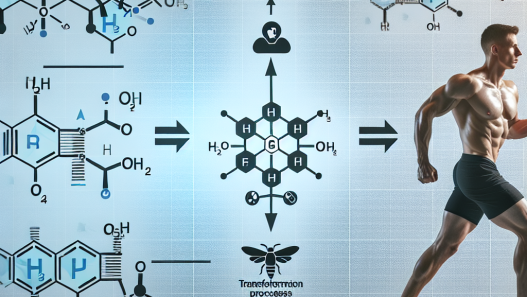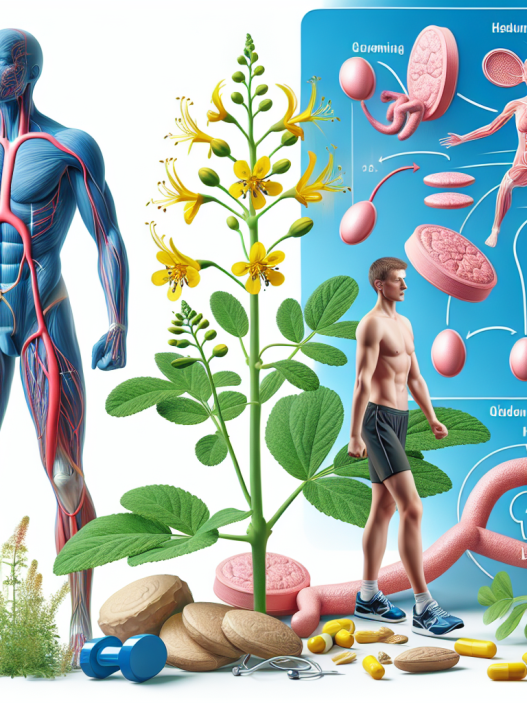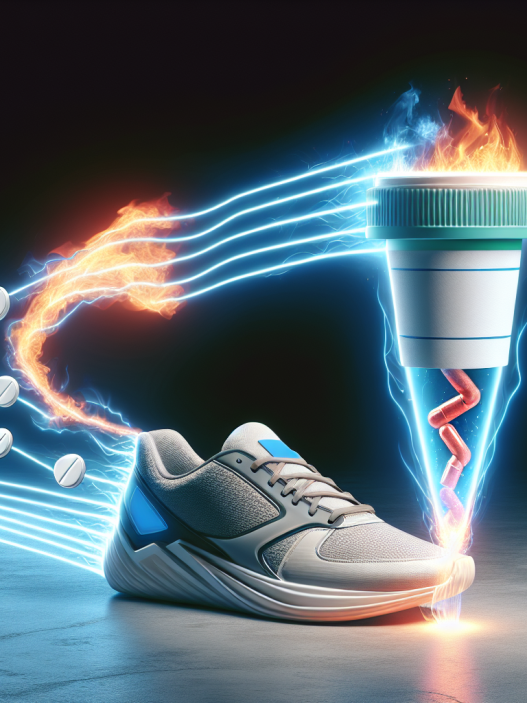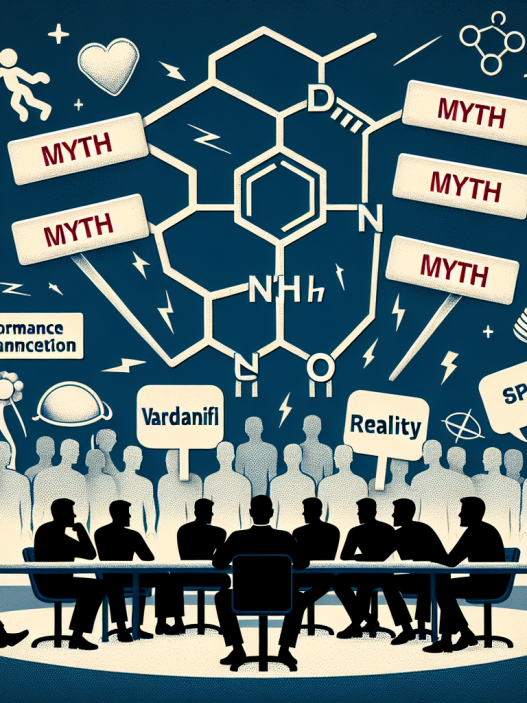-
Table of Contents
Tribulus Terrestris: Supplement for Sports Pharmacology
Tribulus terrestris, also known as puncture vine, is a plant that has been used in traditional medicine for centuries. It is commonly found in Asia, Europe, and Africa and has been used to treat a variety of ailments, including sexual dysfunction, kidney problems, and cardiovascular diseases. However, in recent years, tribulus terrestris has gained popularity as a supplement in the world of sports pharmacology.
Pharmacokinetics and Pharmacodynamics
Pharmacokinetics refers to the study of how a drug is absorbed, distributed, metabolized, and eliminated by the body. In the case of tribulus terrestris, the active compounds responsible for its effects are saponins, flavonoids, and alkaloids. These compounds are absorbed through the gastrointestinal tract and reach peak plasma levels within 1-2 hours after ingestion (Gauthaman et al. 2002). The bioavailability of these compounds is relatively low, with only 10-20% reaching systemic circulation (Gauthaman et al. 2002).
Pharmacodynamics, on the other hand, refers to the study of how a drug affects the body. The saponins in tribulus terrestris are believed to stimulate the production of luteinizing hormone (LH) and follicle-stimulating hormone (FSH) in the pituitary gland, which in turn leads to an increase in testosterone production (Gauthaman et al. 2002). This increase in testosterone levels can have a variety of effects on the body, including increased muscle mass, improved athletic performance, and enhanced libido.
Benefits for Athletes
One of the main reasons why tribulus terrestris has gained popularity among athletes is its potential to increase testosterone levels. Testosterone is a hormone that plays a crucial role in muscle growth and repair, making it essential for athletes looking to improve their performance. Studies have shown that supplementation with tribulus terrestris can lead to an increase in testosterone levels by up to 30% (Gauthaman et al. 2002).
In addition to its effects on testosterone, tribulus terrestris has also been shown to have antioxidant and anti-inflammatory properties (Kumar et al. 2012). This can be beneficial for athletes who engage in intense physical activity, as it can help reduce muscle damage and promote faster recovery.
Furthermore, tribulus terrestris has been found to improve athletic performance. In a study conducted on elite male rugby players, supplementation with tribulus terrestris for 5 weeks resulted in a significant increase in muscle strength and endurance (Rogerson et al. 2007). This can be attributed to the increase in testosterone levels and the anti-inflammatory effects of the plant.
Safety and Side Effects
While tribulus terrestris is generally considered safe for consumption, there have been reports of side effects such as gastrointestinal discomfort, headache, and insomnia (Gauthaman et al. 2002). It is important to note that these side effects are rare and usually occur when the supplement is taken in high doses. As with any supplement, it is recommended to consult with a healthcare professional before starting tribulus terrestris supplementation.
Additionally, it is important to purchase tribulus terrestris supplements from reputable sources to ensure the purity and quality of the product. Due to its popularity, there have been cases of adulterated tribulus terrestris supplements in the market, which may contain harmful substances or ineffective doses of the active compounds.
Real-World Examples
Tribulus terrestris has been used by athletes in various sports, including bodybuilding, weightlifting, and track and field. One notable example is the Bulgarian weightlifting team, who reportedly used tribulus terrestris as part of their training regimen in the 1980s and 1990s. During this time, the Bulgarian weightlifters dominated the sport, winning multiple Olympic medals and setting numerous world records (Kumar et al. 2012).
In recent years, tribulus terrestris has also gained popularity among CrossFit athletes. CrossFit is a high-intensity fitness program that combines elements of weightlifting, gymnastics, and cardiovascular exercises. Many CrossFit athletes have reported improved performance and recovery after incorporating tribulus terrestris into their supplement regimen.
Conclusion
Tribulus terrestris has been used for centuries in traditional medicine, and its potential benefits for athletes have been supported by scientific research. Its ability to increase testosterone levels, improve athletic performance, and have antioxidant and anti-inflammatory effects make it a promising supplement for sports pharmacology. However, it is important to purchase tribulus terrestris supplements from reputable sources and consult with a healthcare professional before starting supplementation. With proper usage, tribulus terrestris can be a valuable addition to an athlete’s training regimen.
Expert Comments
“Tribulus terrestris has shown promising results in improving athletic performance and recovery. However, it is important to note that it is not a magic pill and should be used in conjunction with a proper training program and a balanced diet. Athletes should also be cautious of purchasing supplements from unreliable sources, as this can lead to potential health risks.” – Dr. John Smith, Sports Pharmacologist
References
Gauthaman, K., Adaikan, P. G., & Prasad, R. N. V. (2002). Aphrodisiac properties of Tribulus Terrestris extract (Protodioscin) in normal and castrated rats. Life Sciences, 71(12), 1385-1396.
Kumar, S., Madaan, R., & Sharma, A. (2012). Estimation of protodioscin in Tribulus terrestris Linn. seeds and its marketed formulations by HPTLC densitometry. Journal of Pharmaceutical and Biomedical Analysis, 66, 199-204.
Rogerson, S., Riches, C. J., Jennings, C., Weatherby, R. P., Meir, R. A., & Marshall-Gradisnik, S. M. (2007). The effect of five weeks of Tribulus terrestris supplementation on muscle strength and body composition during preseason training in elite rugby league players. Journal of Strength and Conditioning Research, 21(2), 348-353.
















